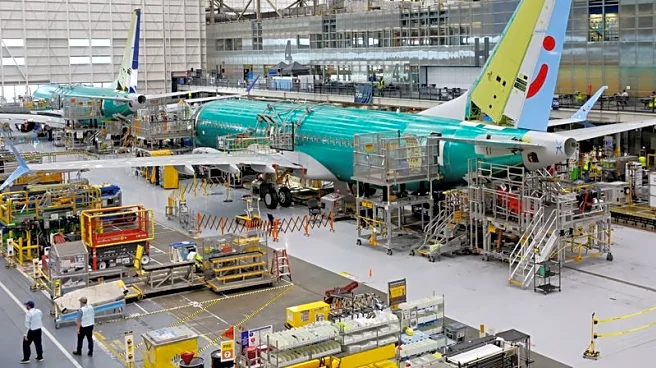What's Happening?
SEW-Eurodrive has introduced DriveTag, a customized barcode labeling system designed to streamline product identification and optimize logistics processes. This service allows customers to define the data
embedded in the tags, such as material numbers and purchase order numbers, creating a personalized system that aligns with their internal processes. DriveTag supports multiple barcode formats, ensuring compatibility with existing scanners and systems. The automation of data entry through DriveTag accelerates processes in goods receipt, warehousing, assembly, and service, reducing manual input and enhancing product tracking throughout its lifecycle.
Why It's Important?
The introduction of DriveTag by SEW-Eurodrive represents a significant advancement in logistics and material handling. By automating data entry and enhancing product tracking, businesses can achieve greater efficiency and accuracy in their operations. This system reduces the likelihood of errors and ensures that products are correctly identified and routed, which is crucial for maintaining operational flow and customer satisfaction. The integration of DriveTag data with ERP and inventory management platforms provides real-time transparency, enabling businesses to make informed decisions and optimize their supply chain processes.
What's Next?
SEW-Eurodrive's DriveTag system is likely to see increased adoption among businesses seeking to improve their logistics and material handling operations. As companies strive for greater efficiency and accuracy, the demand for automated identification systems will grow. SEW-Eurodrive may continue to innovate and expand its offerings to meet the evolving needs of its customers. Additionally, businesses may explore further integration of DriveTag data with advanced analytics and AI tools to gain deeper insights into their operations and enhance decision-making.
Beyond the Headlines
The deployment of DriveTag highlights the growing trend towards automation and digitalization in manufacturing and logistics. This shift has implications for workforce dynamics, as automation can lead to changes in job roles and skill requirements. The ethical considerations of automation, such as its impact on employment, will continue to be a topic of discussion as businesses balance efficiency gains with social responsibility.










